
What is an Amazon CPC Certificate, How to Get it?
Recently, many Amazon sellers have sought assistance regarding the U.S. CPC report.
It has been reported that Amazon has significantly intensified compliance checks on children's products, especially focusing on the authenticity of CPC certificates for children's toys and maternity products. The scrutiny is very strict, and sellers with incomplete or falsified CPC certificates risk having their products removed or even their accounts suspended.
What is a CPC Certificate?
CPC Certification: As per the U.S. Consumer Product Safety Act (CPSA), manufacturers and importers of children’s products must provide a written Children’s Product Certificate (CPC) based on testing results from a CPSC-recognized laboratory to demonstrate compliance with applicable safety regulations for children's products.
CPC certification is a Children’s Product Certificate that applies to all products intended primarily for children aged 12 and under, such as toys, cradles, and children’s clothing.
CPC Forgery Can Lead to Warnings or Account Suspension
On Amazon’s U.S. platform, a CPC certificate is mandatory for listing and selling children's toys and products. However, the high application standards and costs have pushed some sellers to resort to unverified third-party services or outright forgery. Many sellers have been flagged by Amazon for submitting "inauthentic" reports, prompting requests for explanations and real CPC certificates.
Amazon’s intensified compliance policies mean CPC testing reports are under strict scrutiny. Violations can lead to account suspension and product removal. The platform has a "zero tolerance" policy for falsified CPC credentials, and even previously undetected violations are now being addressed. First-time violators may receive a warning, but repeat offenders risk permanent account bans.
If a seller’s CPC certificate is deemed fraudulent, Amazon requires the submission of valid evidence within seven days. Sellers should immediately verify with their suppliers and work with certified testing organizations like China’s JJR Laboratory to obtain authentic CPC reports for submission. Approved reports will remove performance warnings, while unresolved issues may require an appeal letter.
Common Causes of CPC Certificate Invalidity
1. Choosing low-cost service providers or using supplier certificates without verifying authenticity.
2. Resubmitting modified versions of rejected certificates without proper retesting.
3. Missing registration cards and tracking labels in product uploads.
4. Incomplete CPC declaration information.
5. Mismatch between testing reports and product listing content (e.g., model, manufacturer, age group).
Seller’s Self-Help Strategies
1. Ensure Supplier Quality: Require suppliers to meet quality certification standards, and provide proof of compliance to establish yourself as a genuine seller.
2. Provide Registration Cards and Tracking Labels:
- Tracking labels are required for all children’s products (age 12 and under) per CPSIA, including:
- Manufacturer name
- U.S. address and phone number
- Production date and location
- Batch number
- Durable baby or toddler products (e.g., walkers, cribs) must include product registration cards for consumer recall and safety contact purposes.
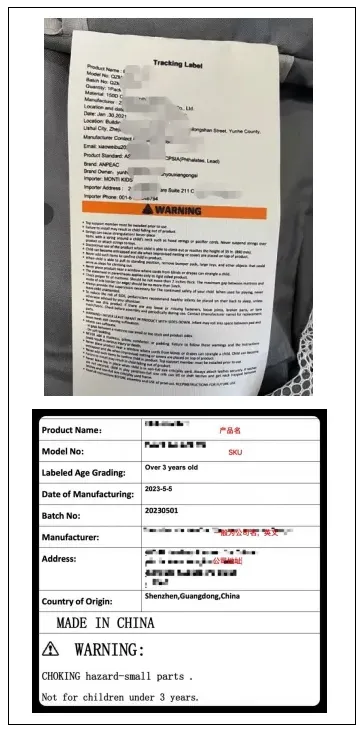
3. Complete CPC Declaration Information: Ensure all seven required elements are included.
4. Align Testing Reports with Listings: Ensure consistency in details such as product type, manufacturer, and intended age group.
5. Address Missing Testing Elements: If supplier-provided CPC certificates lack required tests, such as lead content or electrical safety, conduct supplementary testing with accredited labs.
Required Appeal Materials
Typically, appeals require:
- Company information
- Product images and manuals
- Original CPC certificate
- Testing reports
- Plan of Action (POA)
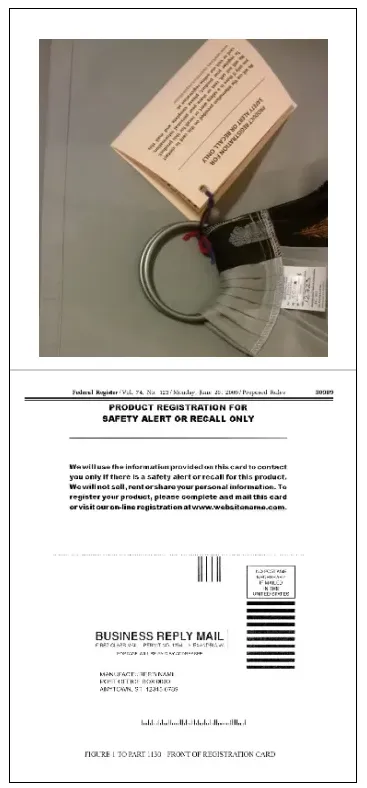
When submitting appeals, emphasize the authenticity of certificates and testing institutions. Regardless of whether the violation is valid or a mistake, provide real evidence to support your case. Otherwise, warnings or account suspension may follow.
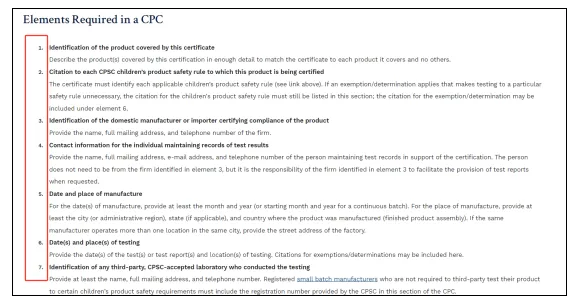
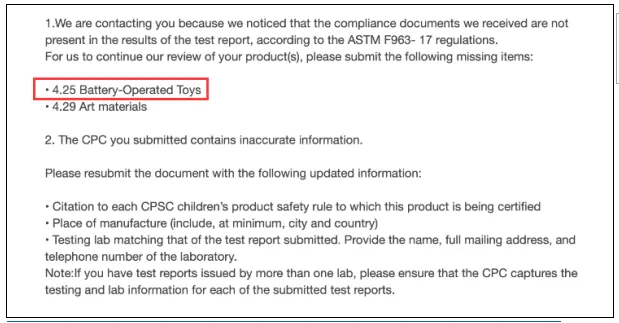
CPC Testing Standards and Items
1. Physical and Mechanical Properties
- Standards: ASTM F963, 16 CFR Part 1501
- Tests: Small parts, sharp edges, drop tests, fastener strength
2. Chemical Safety
- Standards: CPSIA Section 101, 16 CFR Part 1303, 16 CFR Part 1307
- Tests: Lead content, cadmium content, phthalates
3. Flammability Testing
- Standards: 16 CFR Part 1610
- Tests: Fabric flammability, sleepwear combustion
4. Labeling and Tracking Information
- Standards: CPSIA Section 103
- Requirements: Permanent tracking labels
5. Electrical Safety (if applicable)
- Standards: UL standards (e.g., UL 1026), fcc part 15
- Tests: Electromagnetic compatibility, electrical performance
6. Other Consumer Product Standards
- Standards: ASTM D4236 (art materials), 16 CFR Part 1500 (hazardous substances)
- Tests: Toxicity, chemical composition analysis
Amazon’s intensified compliance checks aim to enhance platform safety and adherence to regulations. For sellers, this represents a significant challenge. By securing and submitting legitimate CPC reports, sellers can avoid account suspension risks. Following rules and maintaining transparency is key to long-term success.
For one-stop compliance services, you can consult China JJR Laboratory, an Amazon SPN compliance service provider. If this information is helpful, share it with other sellers!
Email:hello@jjrlab.com
Write your message here and send it to us
 Packaging Validation ISO 11607 Test Report
Packaging Validation ISO 11607 Test Report
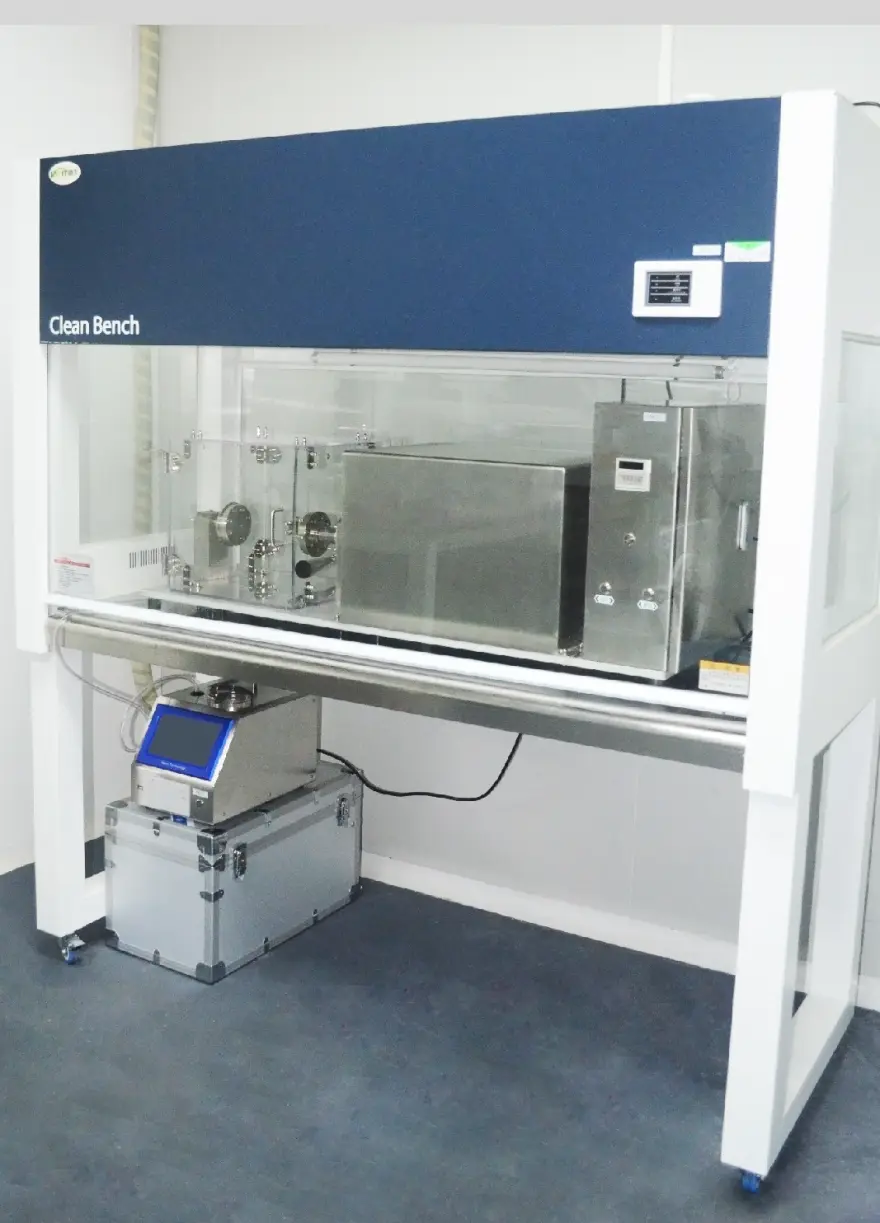 What is the ISO 11607-1 Packaging Validation Test?
What is the ISO 11607-1 Packaging Validation Test?
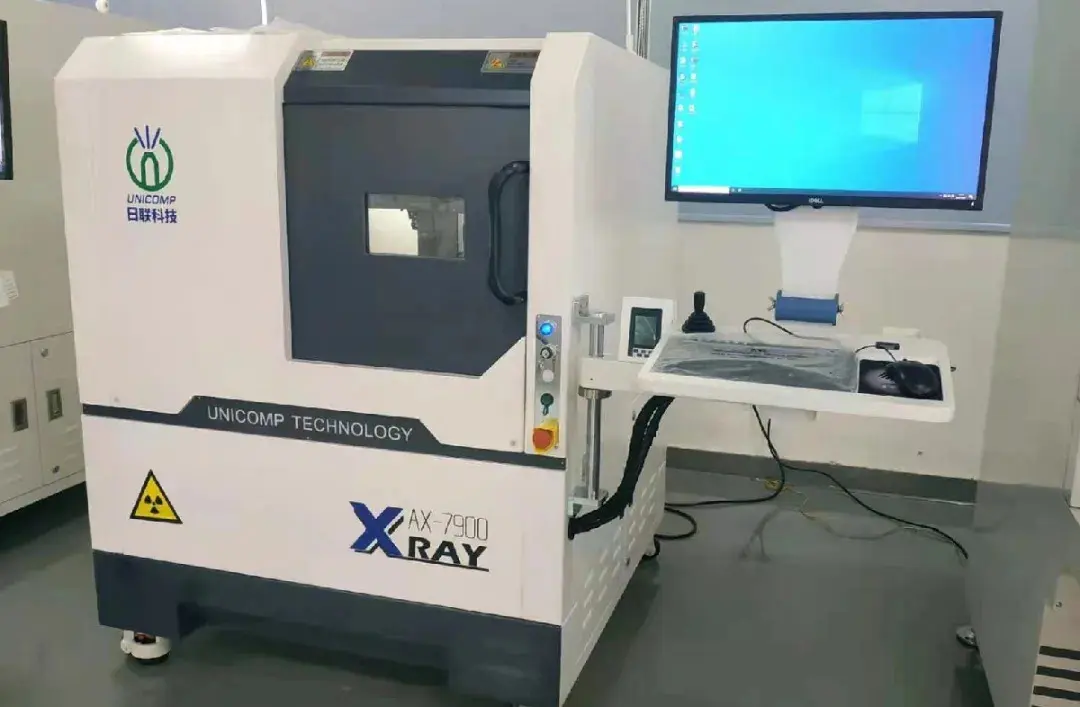 How to get an ISO 11737-1 Test Report?
How to get an ISO 11737-1 Test Report?
 Orthopedic Implant Cleanliness Testing
Orthopedic Implant Cleanliness Testing
 What is ISO 10993-23:2021 Irritation Testing?
What is ISO 10993-23:2021 Irritation Testing?
 ISO 10993-23 Irritation Testing Laboratory
ISO 10993-23 Irritation Testing Laboratory
 EMI Emissions Testing
EMI Emissions Testing
 EMC Standards for Medical Devices
EMC Standards for Medical Devices
Leave us a message
24-hour online customer service at any time to respond, so that you worry!




